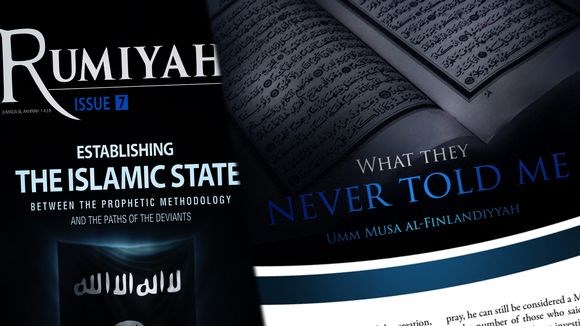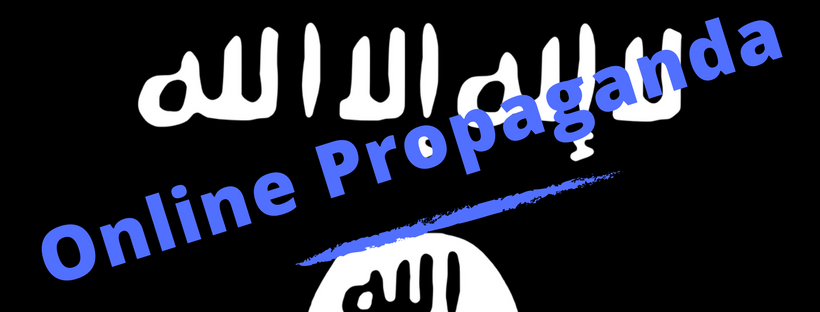Online propaganda
Blog
Ethics is Method, Method is Ethics: What Terrorism Researchers Should Know
September 5, 2018By Carol Winkler One of the attendees at the recent Ethics of Terrorism Research workshop held at Swansea University poignantly observed, “ethics is method, method is ethics.” This rich concept has various implications for how terrorism researchers should think about their work. To start such a conversation, I will revisit Simon Cottee and Jack Cunliffe’s ...
Blog
A Tribal Call to Arms: Propaganda and What PVE Can Learn from Anthropology, Psychology and Neuroscience
June 6, 2018By Alexander Ritzmann The Propaganda Process Is online propaganda really effective? How can it be countered? And what can practitioners of Preventing Violent Extremism (PVE) and policymakers learn from the research findings of other relevant disciplines, such as anthropology, psychology and neuroscience? Propaganda, understood here as the strategic communication of ideas aiming at manipulating specific target ...
Blog
Reverse-Engineering the ISIS Playbook, Part II: CT-CVE Messaging Lessons from ISIS’s English-language Magazines
April 18, 2018By Haroro J. Ingram & Alastair Reed In Part I of this series, the authors presented the key findings of the CTSC Project’s latest publication titled “Islamic State’s English-language Magazines, 2014-17: Trends & Implications for CT-CVE Strategic Communications”. It began by highlighting the limitations inherent to studies of ISIS’s English language messaging before identifying the first ...
Blog
Reverse-Engineering the ISIS Playbook, Part I: CT-CVE Messaging Lessons from ISIS’s English-Language Magazines
April 13, 2018By Haroro J. Ingram & Alastair Reed The challenges associated with confronting militant Islamist propaganda have not waned with the territorial demise of the so-called Islamic State (ISIS). Sure, ISIS’s propaganda output is down overall from the peaks of 2015 and this downward trend has provided the backdrop for periods of particularly sharp declines in mid-2016 and late-2017. ...
Blog
The Islamic State’s Manipulation of Gender in their Online Information Operations
March 22, 2018By Kiriloi M. Ingram Since the self-proclaimed Caliphate’s inception, debate amongst scholars has ensued over whether the Islamic State’s (IS’s) muhajirat (female émigrés) would become female combatants. For example, Nelly Lahoud argues that IS is unlikely to devise a policy explicitly allowing women to engage in combat, as legitimating such a role would allow women to ...
Blog
ISIS’s Online Propaganda and Underlying Psychological Orientations of Its Consumers
January 18, 2018By Matteo Vergani and Ana-Maria Bliuc. Are the psychological factors driving ISIS’s mobilisation in Western countries different from those characteristic of other jihadist groups like al-Qaeda? Does the target audience of ISIS’s English-language online propaganda differ from that of al-Qaeda? If so, then how? In our new journal article, we examine these questions by analysing the ...
Blog
What is Britain First? The Far-Right Group Retweeted by Donald Trump
December 6, 2017By Chris Allen Donald Trump’s decision to retweet a number of videos originally posted by Jayda Fransen – the deputy leader of the far-right street movement Britain First – was as unfounded as it was unexpected. Retweeted without additional comment, the three videos purported to show a group of Muslims pushing a boy off a ...
Blog
Industry Efforts to Censor Pro-Terrorism Online Content Pose Risks to Free Speech
October 11, 2017By Sophia Cope, Jillian C. York, and Jeremy Gillula In recent months, social media platforms—under pressure from a number of governments—have adopted new policies and practices to remove content that promotes terrorism. As the Guardian reported, these policies are typically carried out by low-paid contractors (or, in the case of YouTube, volunteers) and with little to ...
Blog
Wilayat Internet: Islamic State’s Resilience Across the Internet and Social Media
October 4, 2017By Laurence Bindner, Raphael Gluck This article was originally published in French on Ultima Ratio. Since partly going underground in the deep-web, ISIS exerts continuous pressure to make its propaganda surface on the public web. Adapting constantly to ever more active censorship, ISIS uses the various web platforms in an opportunistic and agile way. Therefore, ...
News
Research Finds Social Media Disruption Impacting on Islamic State Propaganda
August 15, 2017In one 24-hour period, 65% of Twitter accounts tweeting out-links to IS propaganda were suspended within 17 hours Focus of online disruption on IS allows other jihadi groups to outpace them on social media VOX-Pol researchers from Dublin City University, together with colleagues from the University of Sussex, have found that the social media platform, ...









